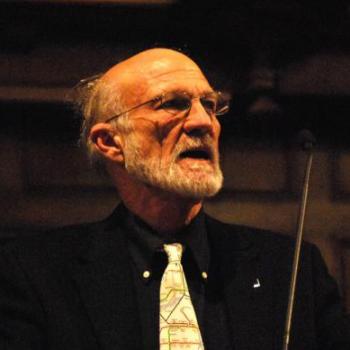
Consider the Critters
You have heard it said, “Go to the ant, you sluggard; consider its ways, and be wise” (Prov 6:6) or “Consider the lilies of the field, how they grow; they toil not, neither do they spin” (Matt 6:28). But I say to you, “Consider the rat.”
When it comes to disgusting creatures, rats rank relatively high. A good friend of mine had a rat infestation in his house last year, and his wife is still struggling to sleep at night. They startle us. They give us the heebie-jeebies. The thought of one sniffing around our cupboards or crawling on our bed greatly disturbs us.
Yet rats have much to teach us about community—an important dimension of the church’s life together. Let me explain.
Getting It All Wrong
Jahann Hari studies addiction. He’s read a lot, traveled a lot, and framed some of his initial findings in a Ted Talk that went viral (over 6 million views).
His main point is that almost everything we think about addiction is wrong. The prevailing notion that it is mostly about chemical hooks is wrong. People routinely assume that if we indulge in an addictive substance for an extended period of time, our bodies will get hooked on the chemicals and won’t be able to unhook without some sort of chemical reversal or therapeutic process. How convenient for mental health establishments and pharmaceutical enterprises!
But this story, as Hari tells it, is refuted by both experience and science. In Vietnam numerous soldiers got hooked on drugs. Yet, a striking 95% of those who became addicts there returned home without continuing their addiction. Similarly, a majority of those who are placed on medical heroine for an extended time for surgical purposes had little trouble weaning off afterward.
These trends in no way diminish the fact that some people do get hooked and that it utterly destroys their lives. In our day, opioids have become a huge problem that must be taken seriously.
However, it may be a mistake to assume that access and exposure to drugs are the reasons why so many people get addicted to them. Access may be a prerequisite and exposure a catalyst, but that does not make them the underlying cause. Misdiagnosing the problem inevitably leads to prescribing the wrong solution.
A Rat’s Tale
Here is where experiments enter the conversation. Hari recounts one such experiment by Bruce Alexander. He placed a single rat in a cage with two water bottles. One contained pure water and the other water laced with cocaine. The outcome was tragic. The rat chose the cocaine and indulged to the point of death. The experiment was repeated numerous times with the same effect.
These results appear to confirm the chemical hook theory. But then Alexander introduced two key variables. He added more rats and a few amusing activities. This transformed a drab, solitary rat cage into a lively, interactive rat park.
The results were profound. The rodents rejected the cocaine water and preferred the ordinary bottle. It turns out, Hari concluded, that rats are social creatures that need to bond and be active. When they cannot bond to others in healthy ways and participate in meaningful activities, they bond to substances and activities that are bad for them.
Of Mice and Men
Might the same be said of humans? This theory was tested in Portugal with similar results. Faced with a growing heroin epidemic, they introduced new variables. They decriminalized drugs and took all the money formerly spent on rehab and invested it in helping people re-acclimate to society by giving them paying jobs and a sense of purpose.
This reform resulted in a 50% drop in drug use. Hari’s conclusion: the opposite of addiction is not sobriety, but connection.
I’m no scientist and, though I have a doctorate, it’s not in the health profession. Nor do I have a particular agenda concerning the legalization of drugs. But I’m inclined to believe that Hari is onto something. Although Scripture does not offer a clear theology of personhood, note that the first problem identified in Scripture has to do with connection (or the lack thereof):
“And the LORD God said, ‘It is not good for the man to be alone’” (Gen 2:18).
Throughout both the Old Testament and New Testament, God strives to form his chosen people into a robust interdependent society that should be known by their love for one another. This is perhaps most clear in 1 Corinthians 12:20-26 where Paul says of the church:
“There are many members, yet one body. The eye cannot say to the hand, ‘I have no need of you,’ nor again the head to the feet, ‘I have no need of you.’ On the contrary, the members of the body that seem to be weaker are indispensable, and those members of the body that we think less honorable we clothe with greater honor, and our less respectable members are treated with greater respect; whereas our more respectable members do not need this. But God has so arranged the body, giving the greater honor to the inferior member, that there may be no dissension within the body, but the members may have the same care for one another. If one member suffers, all suffer together with it; if one member is honored, all rejoice together with it.”
Some good friends of mine in Hawaii introduced me to Hari’s theory. They refer to their house church as “Rat Park.” I think they’re onto something, too!













